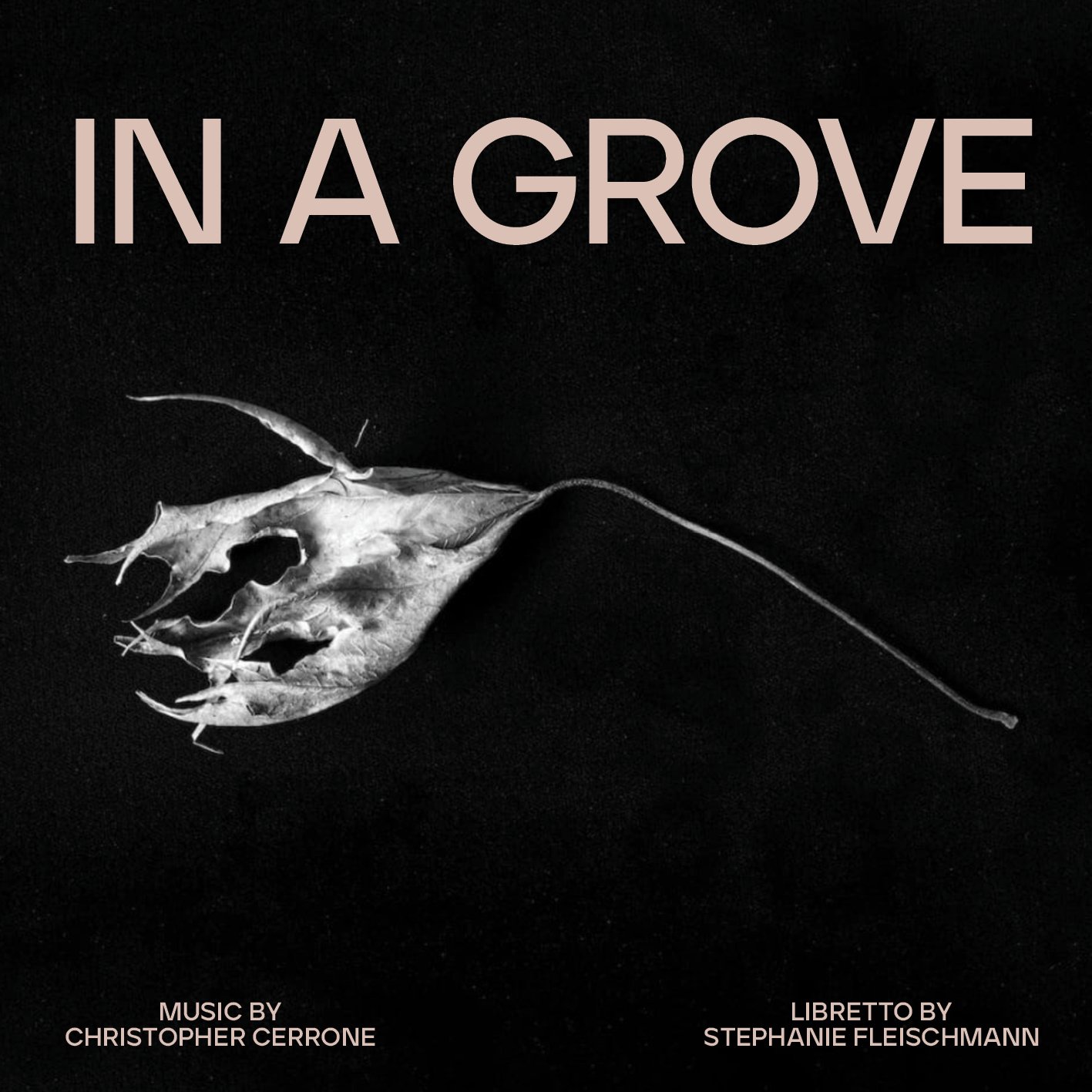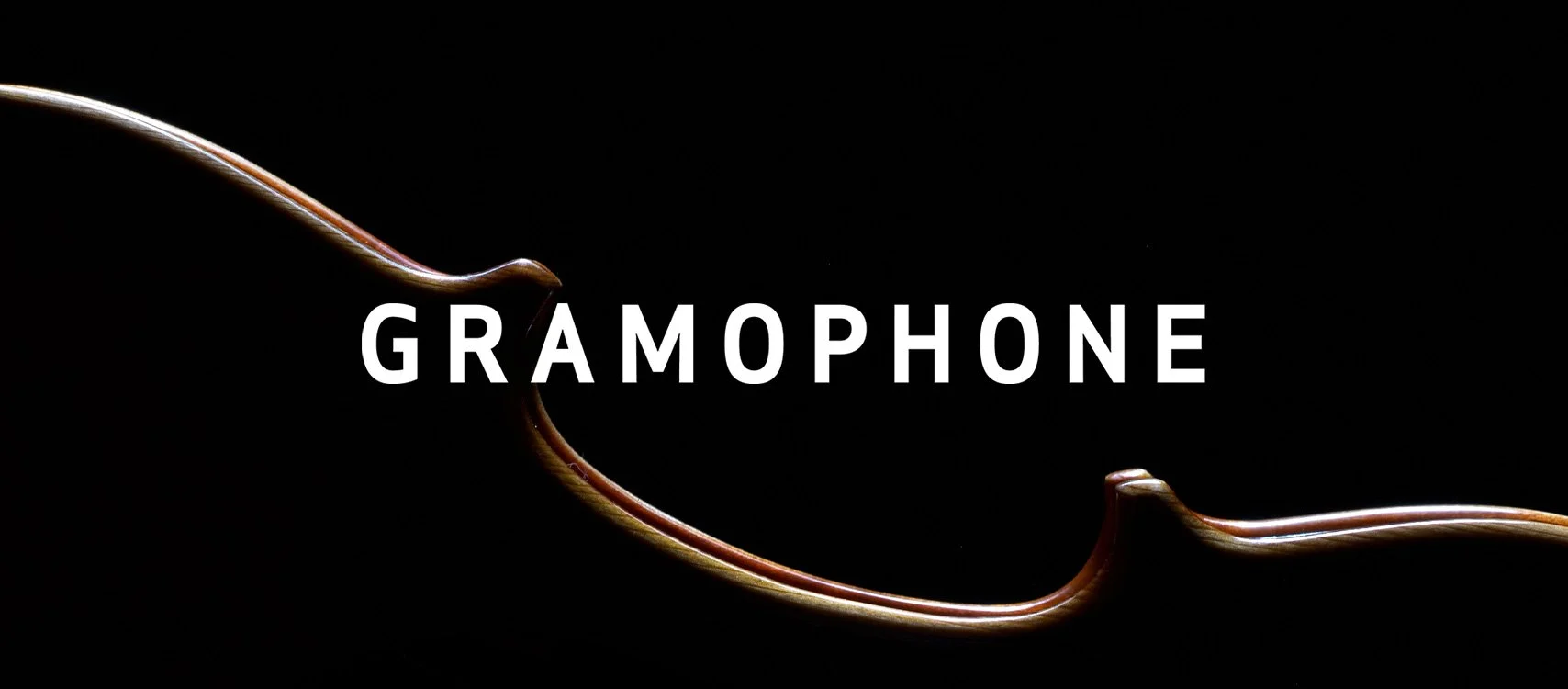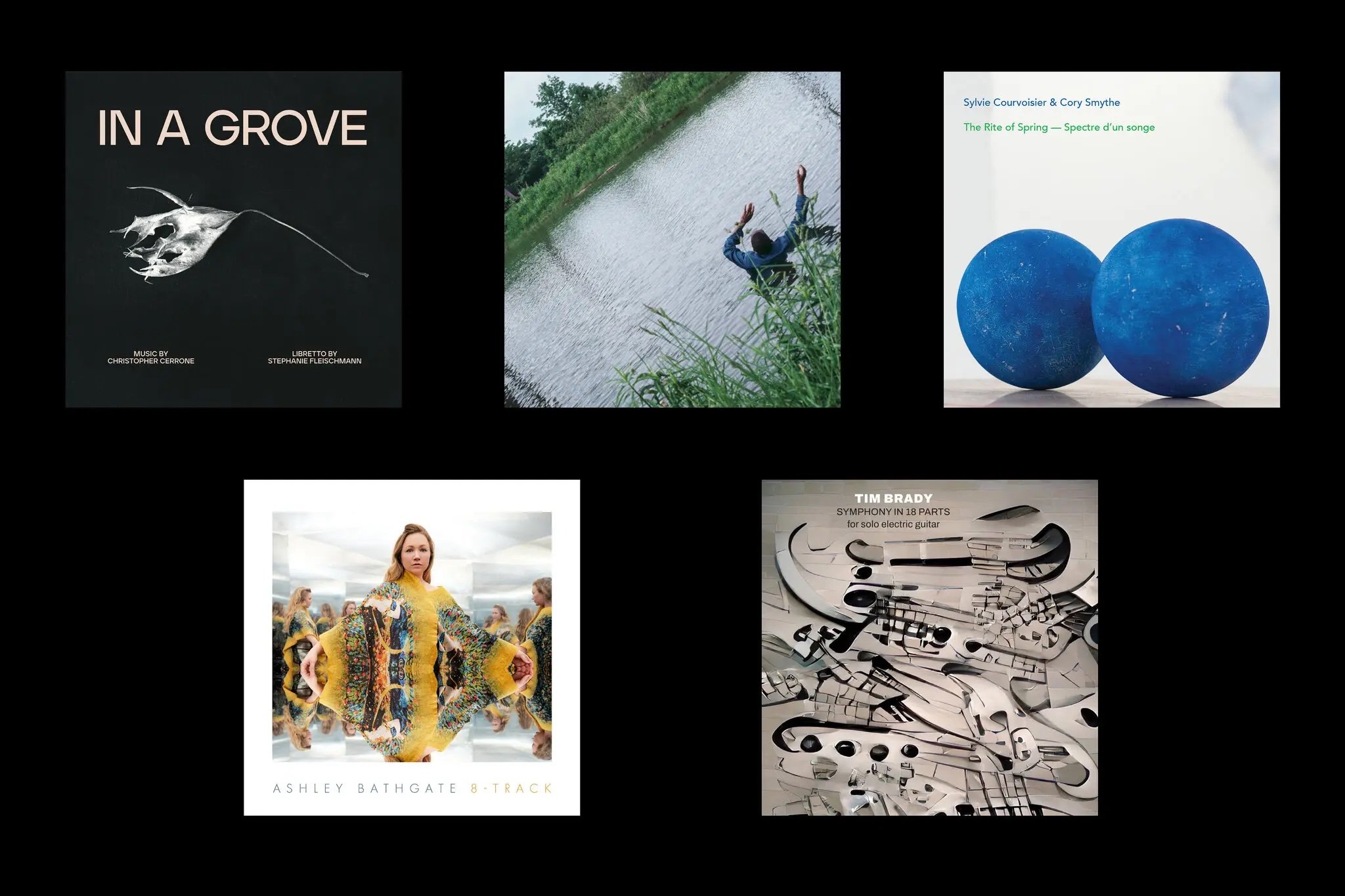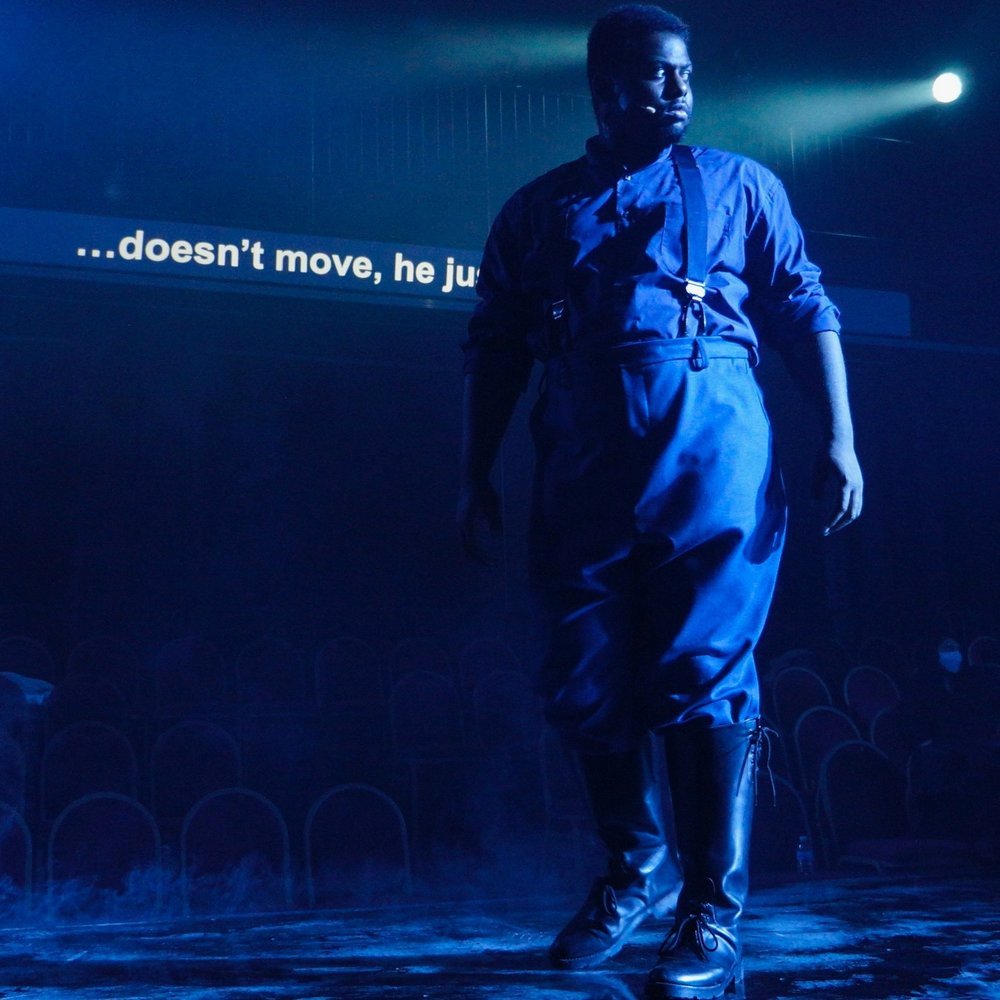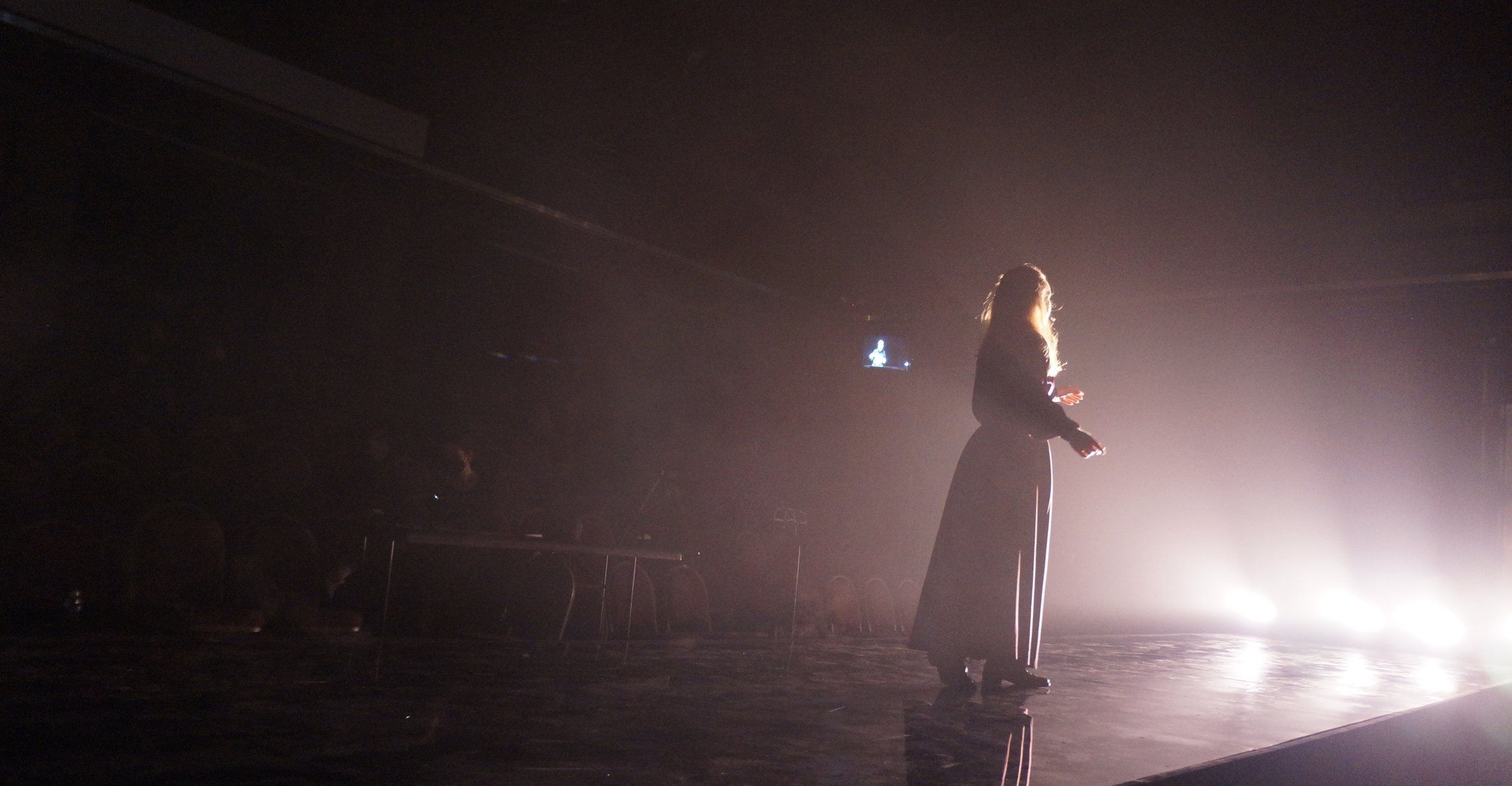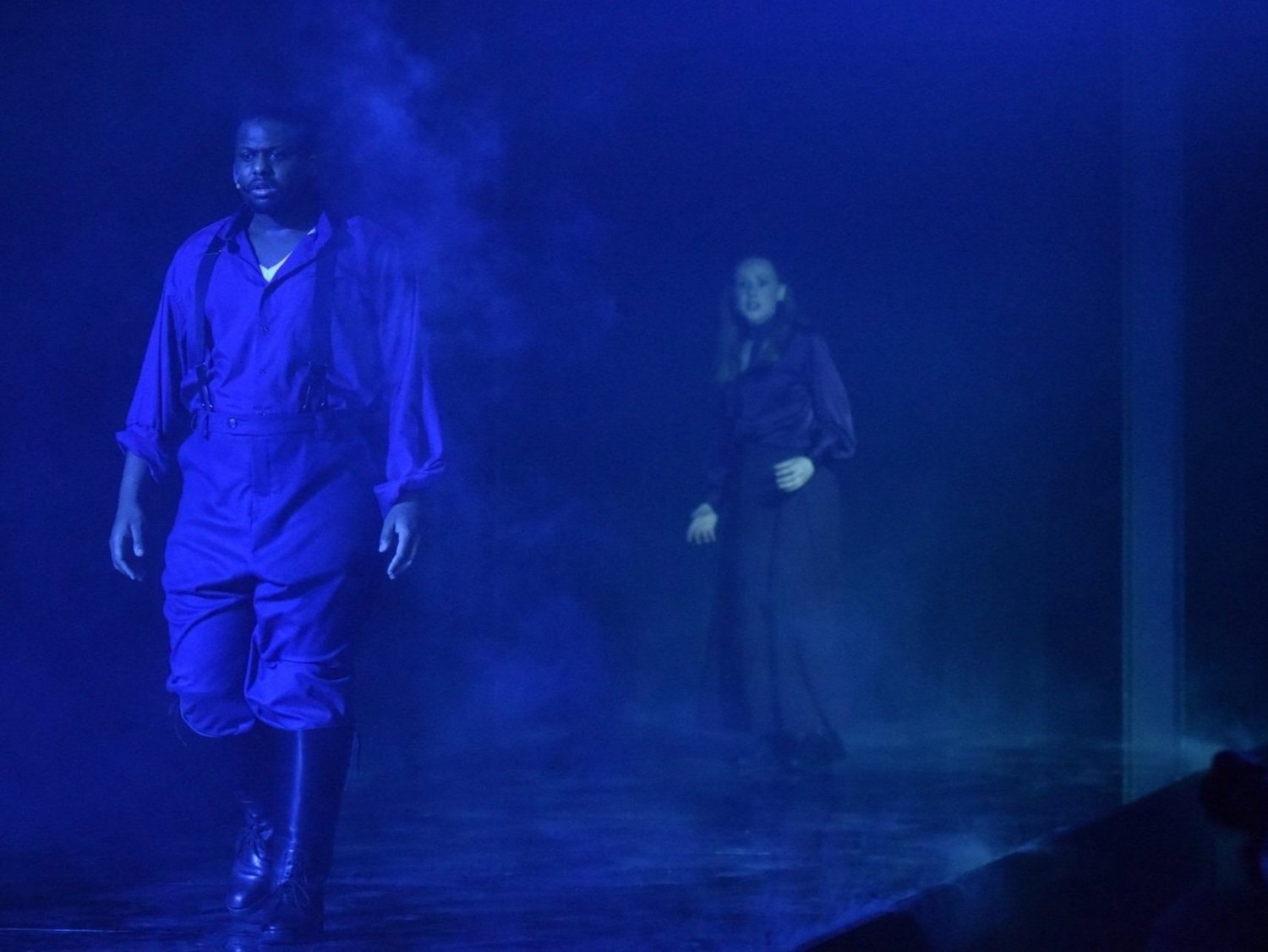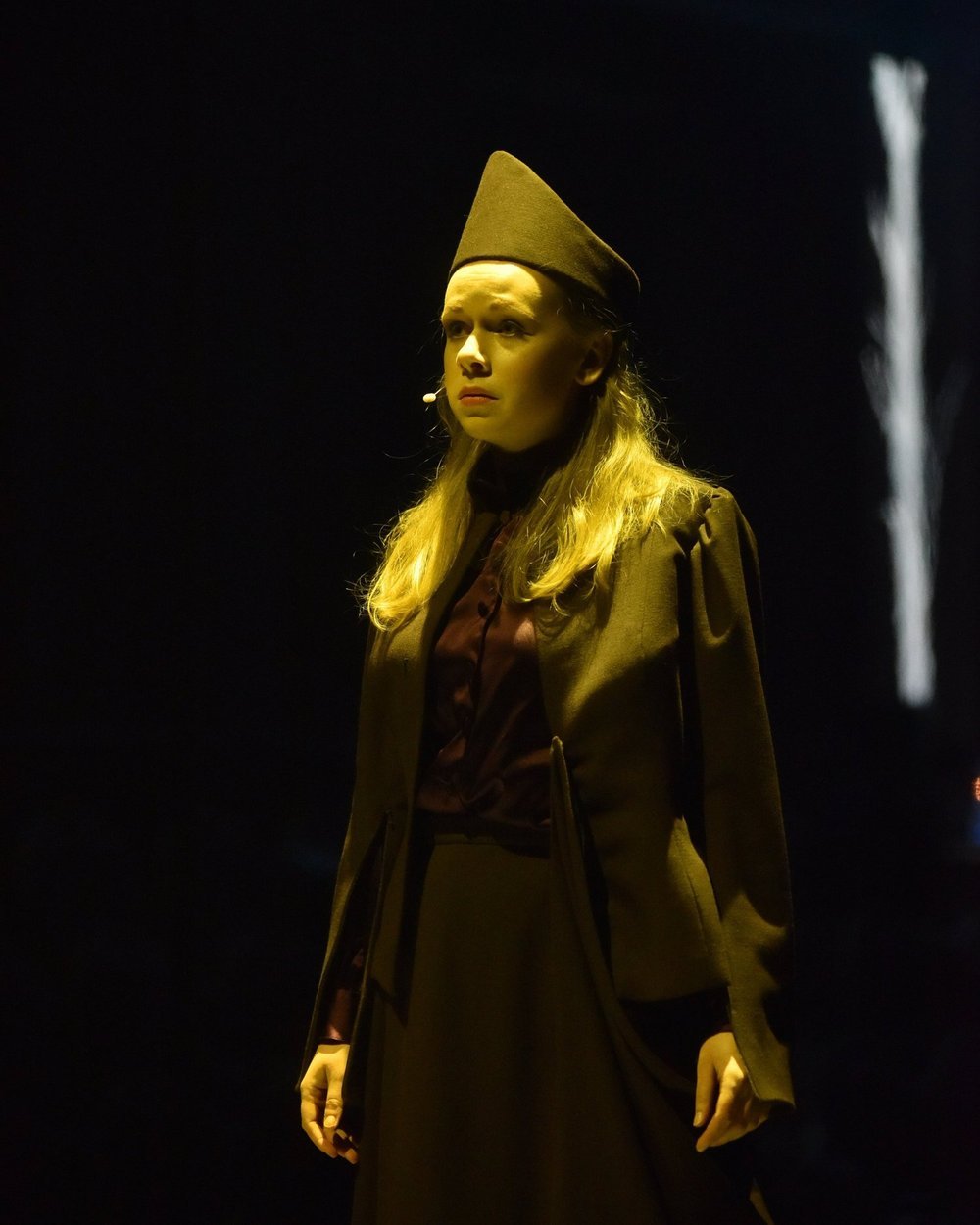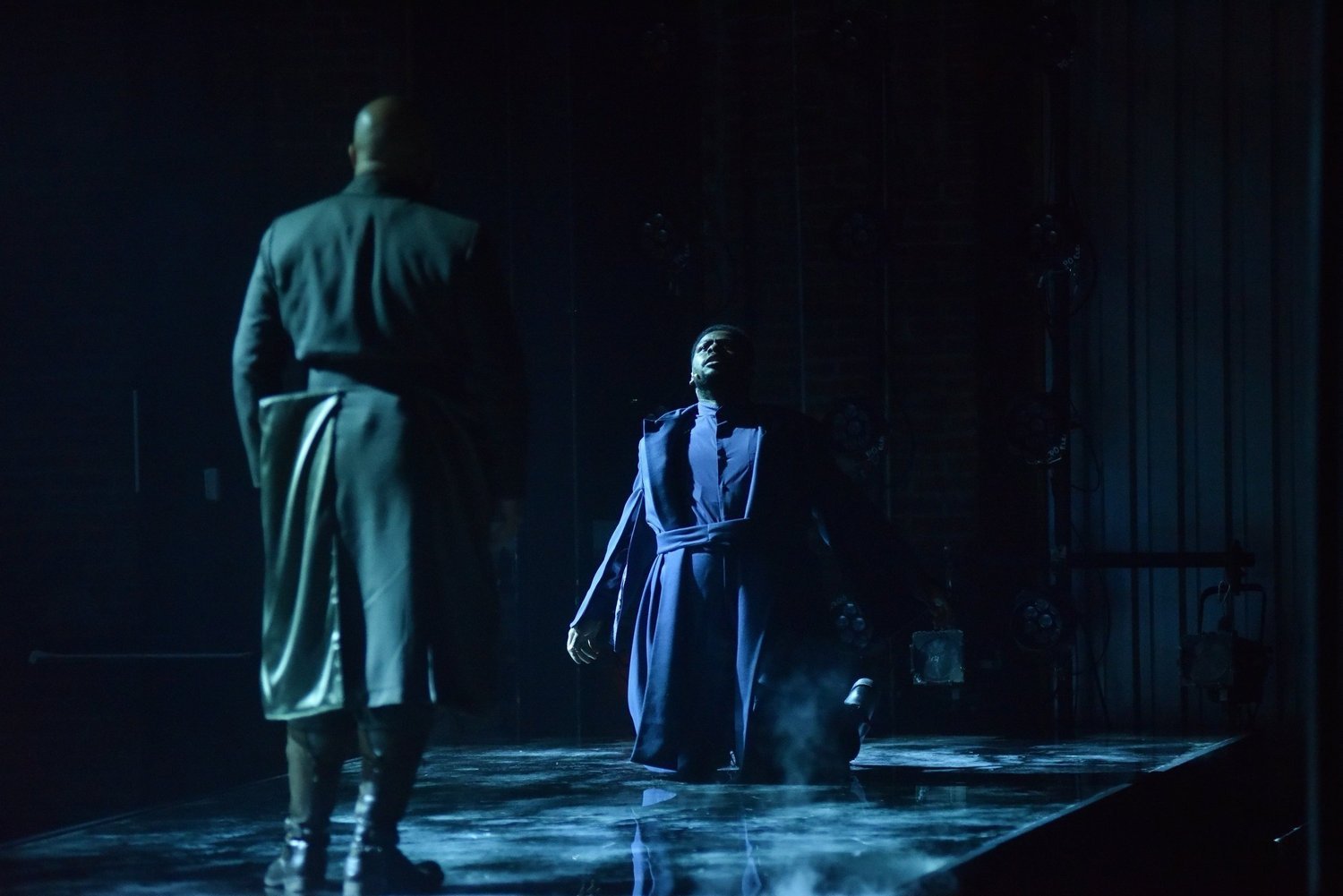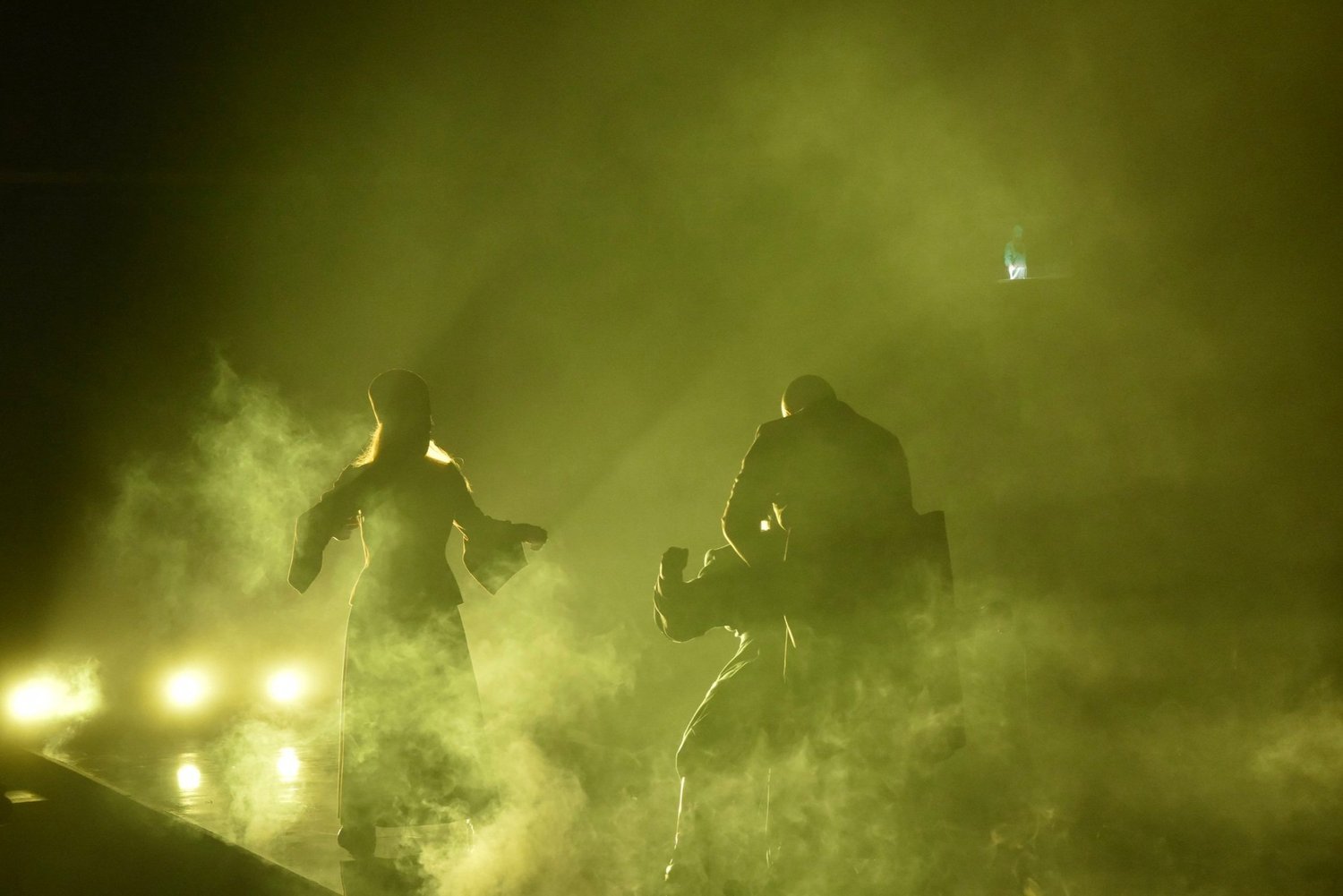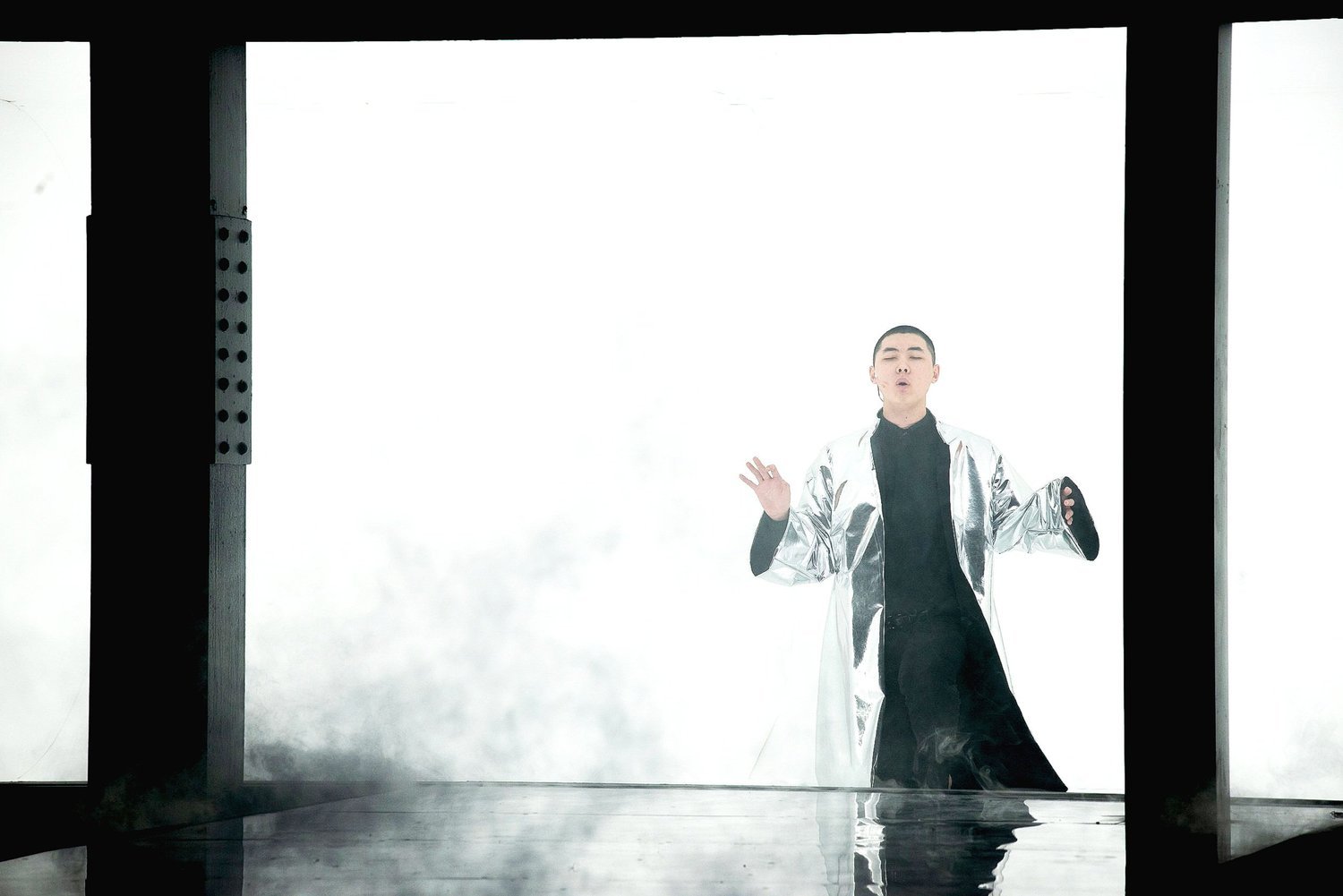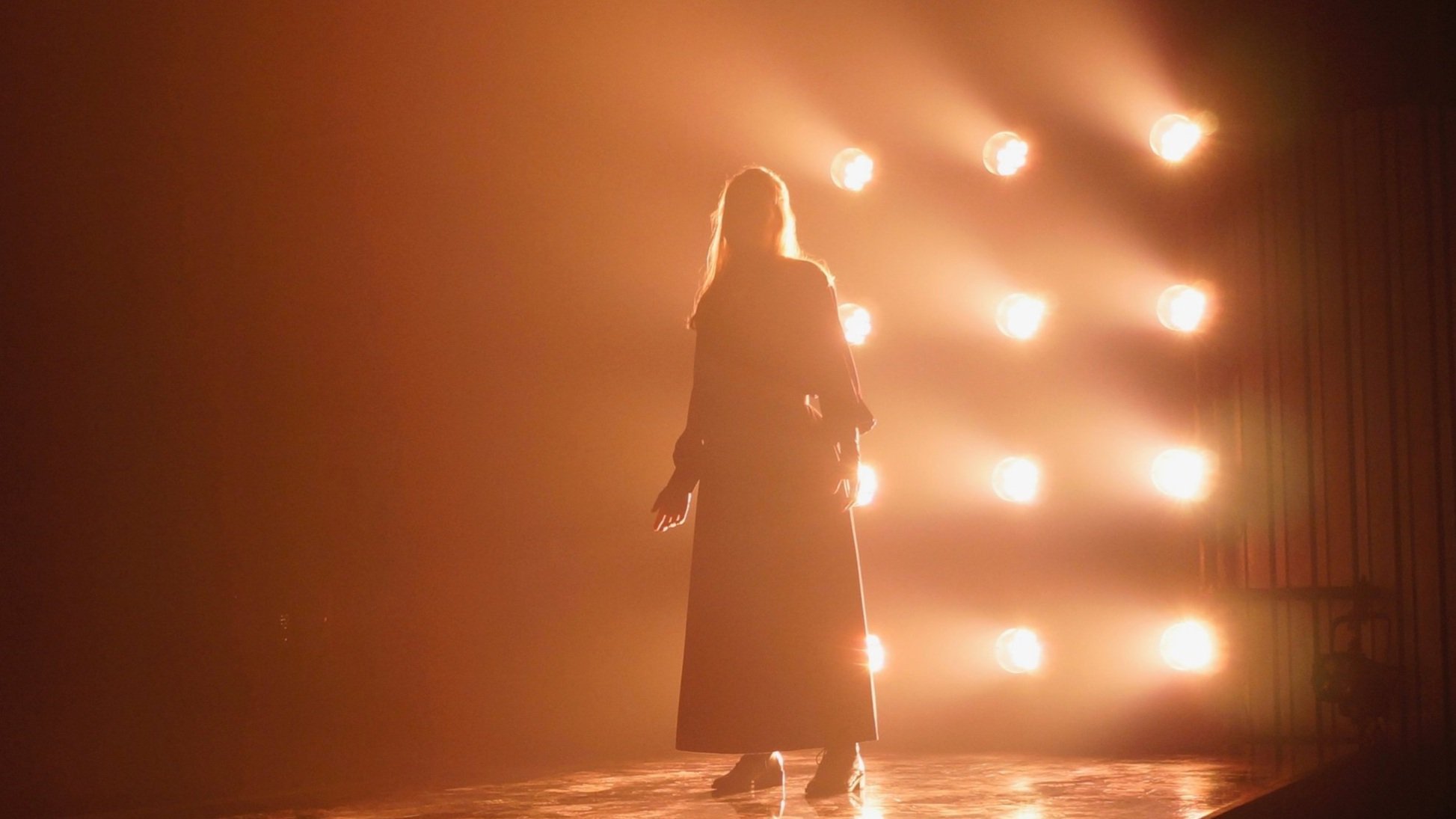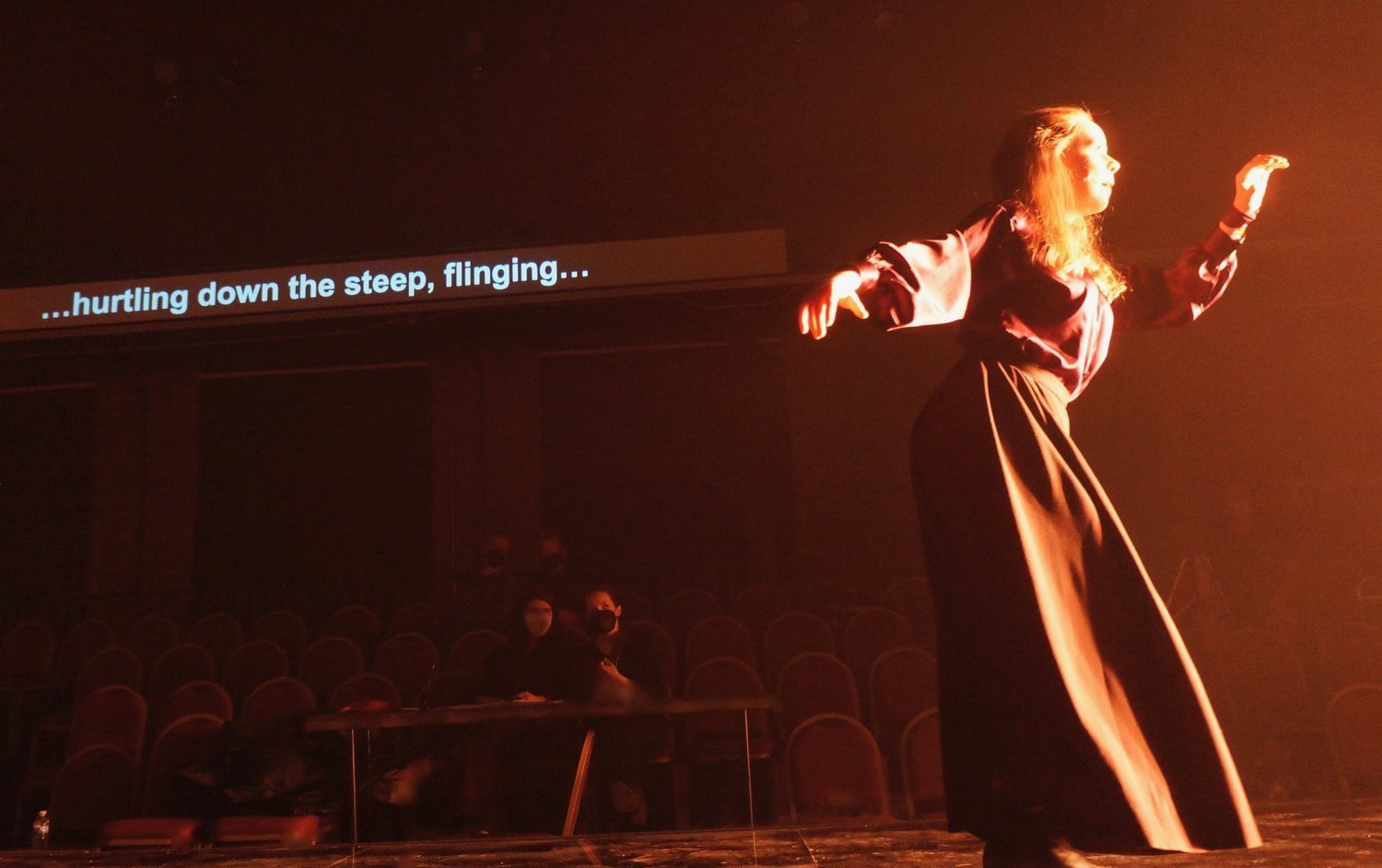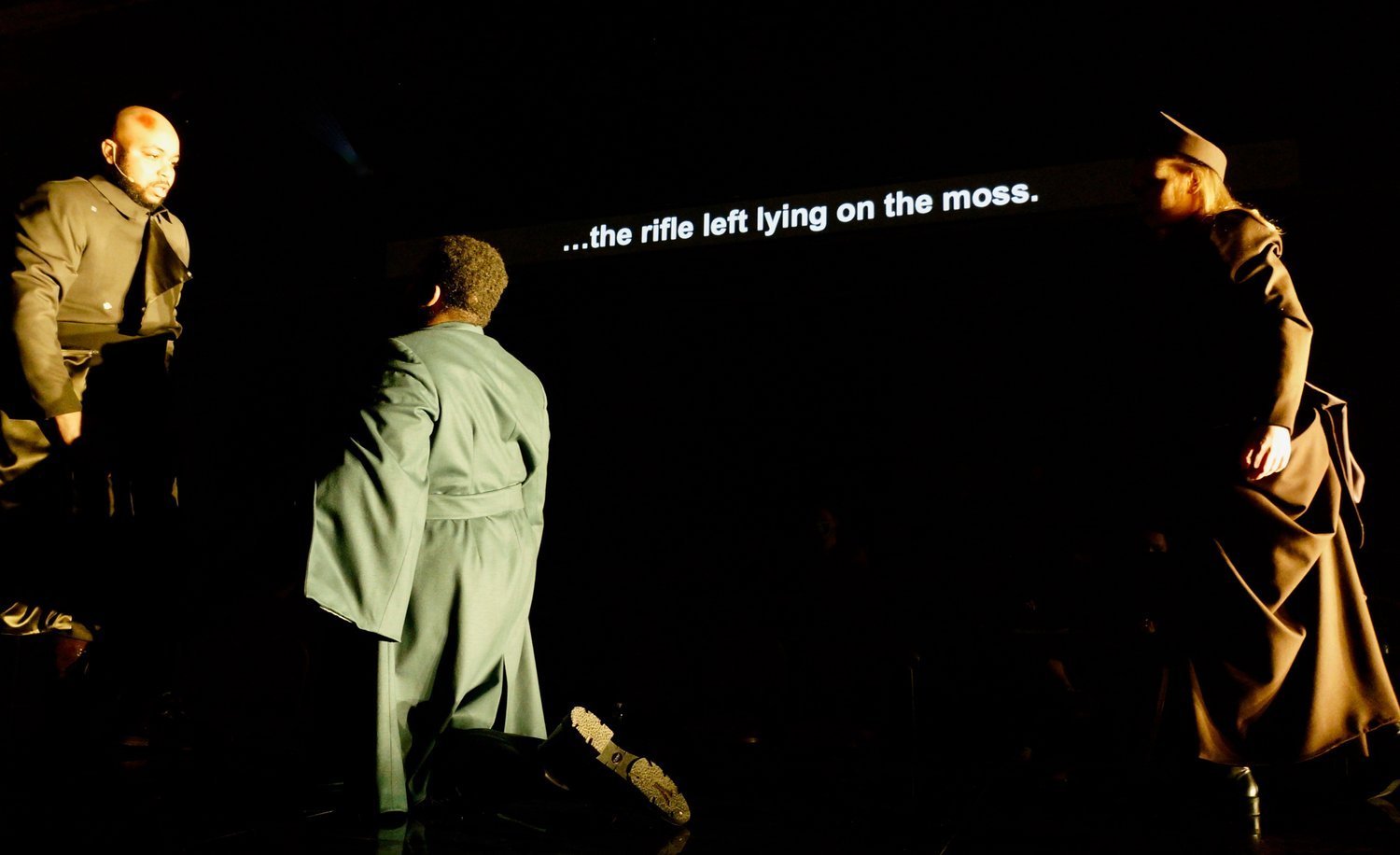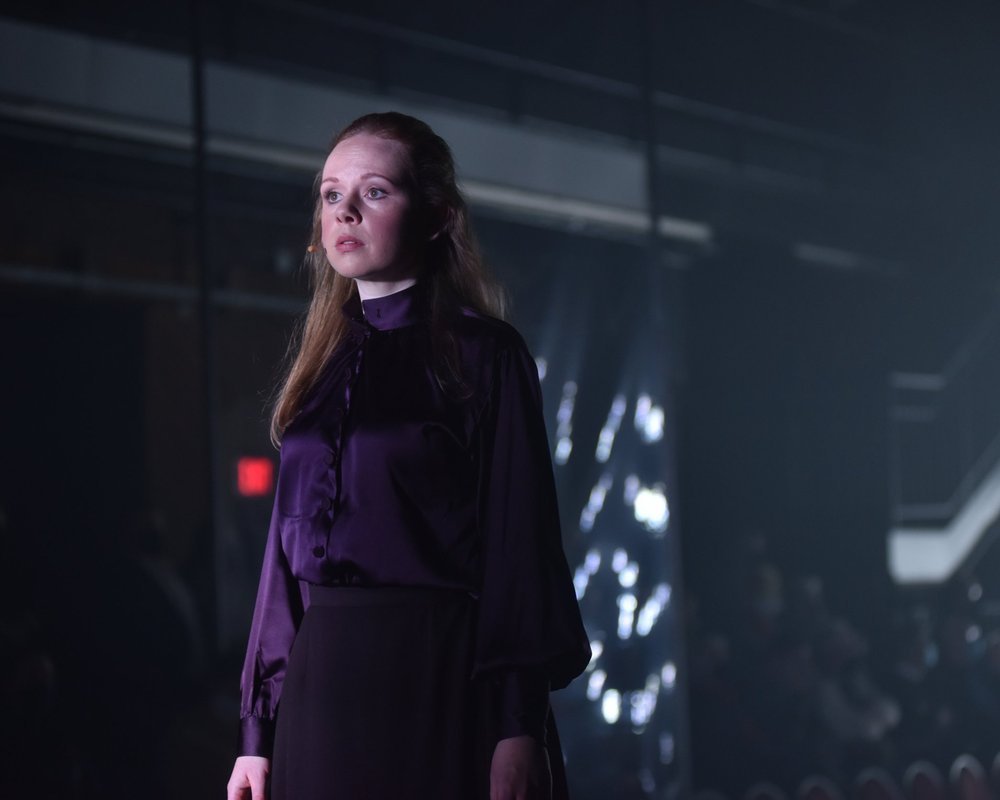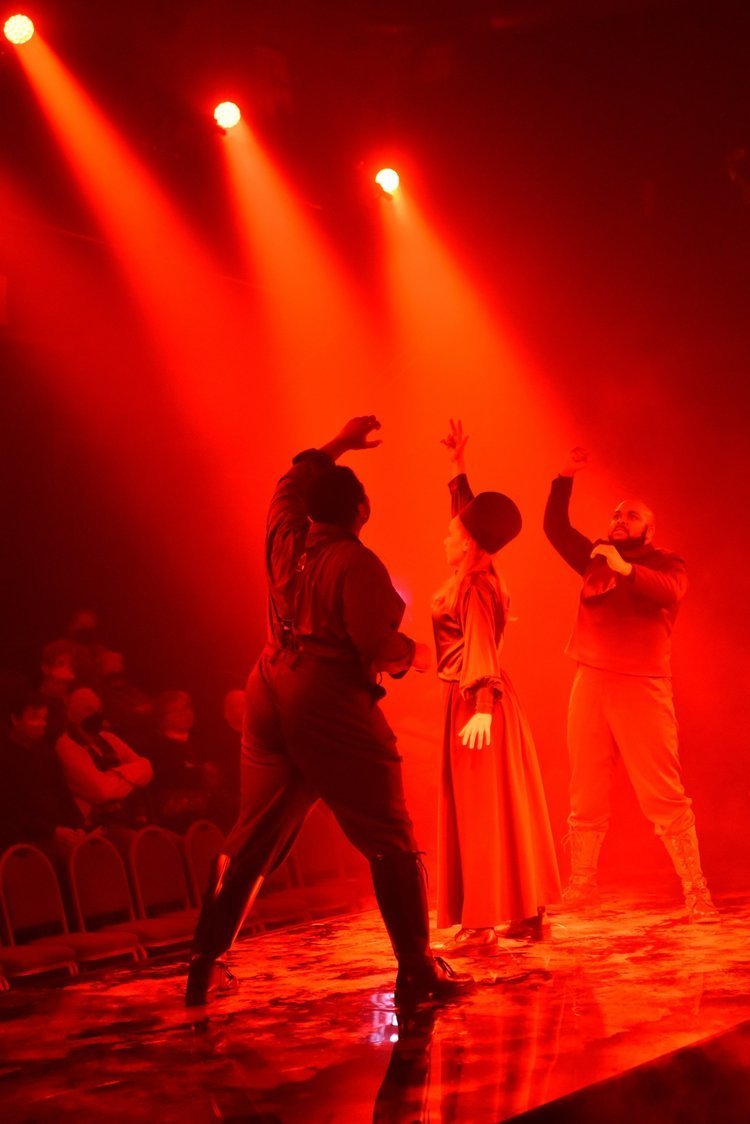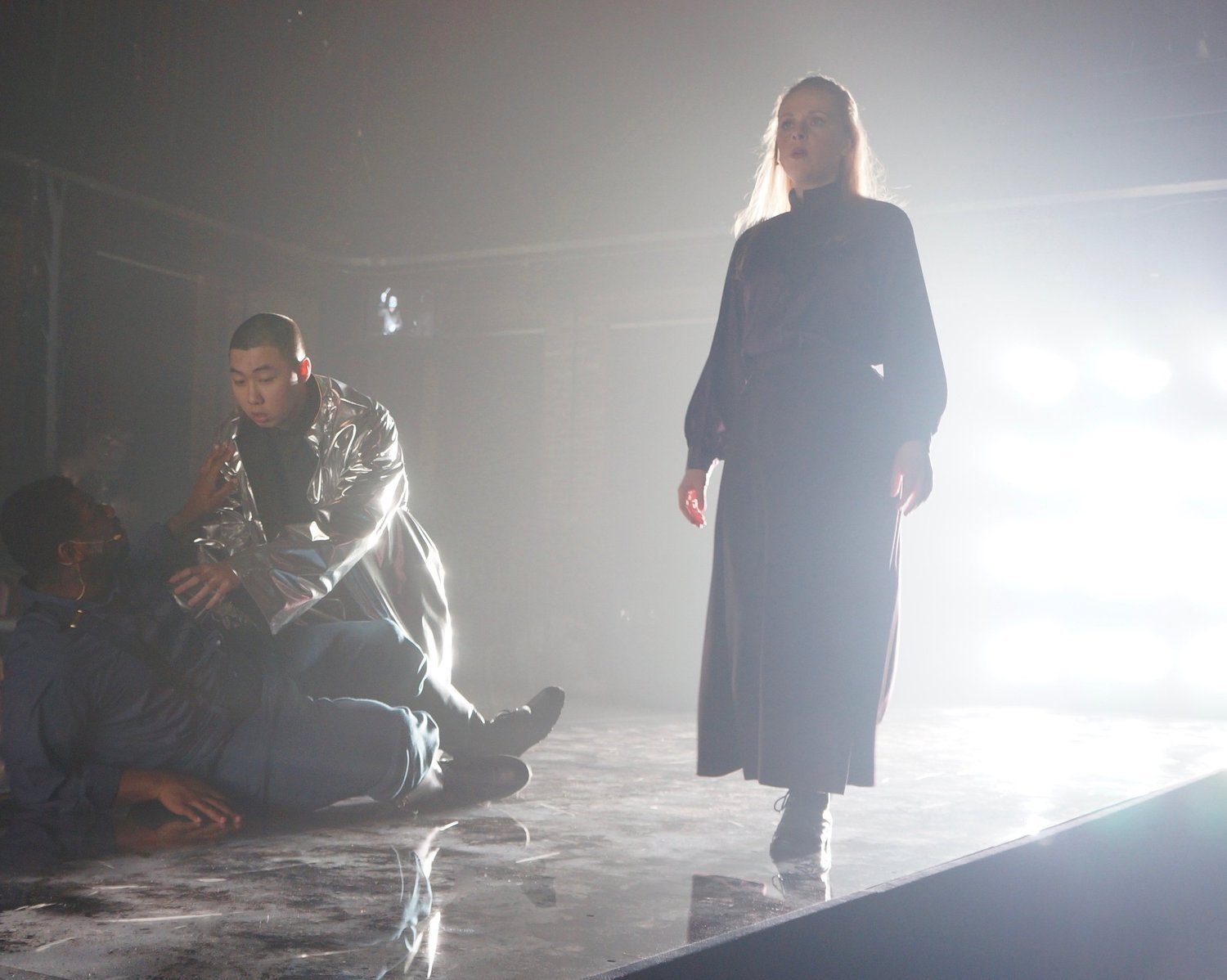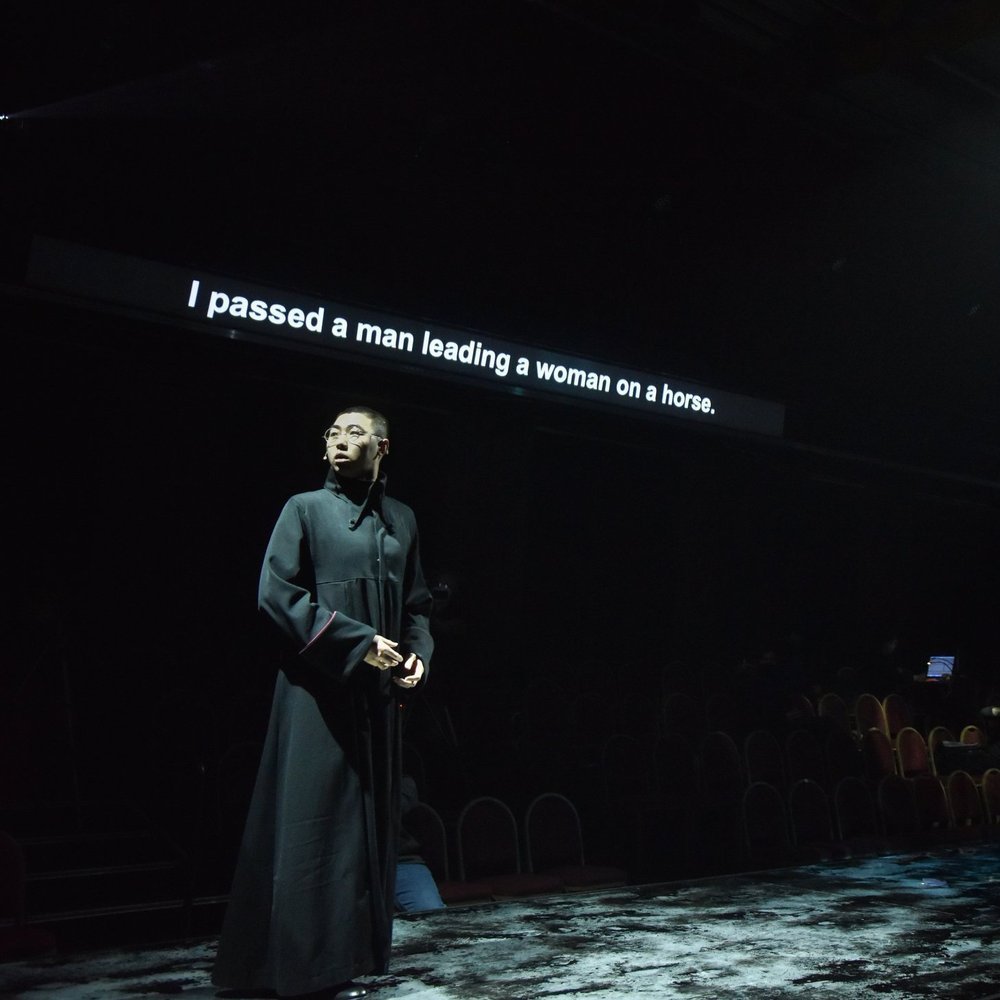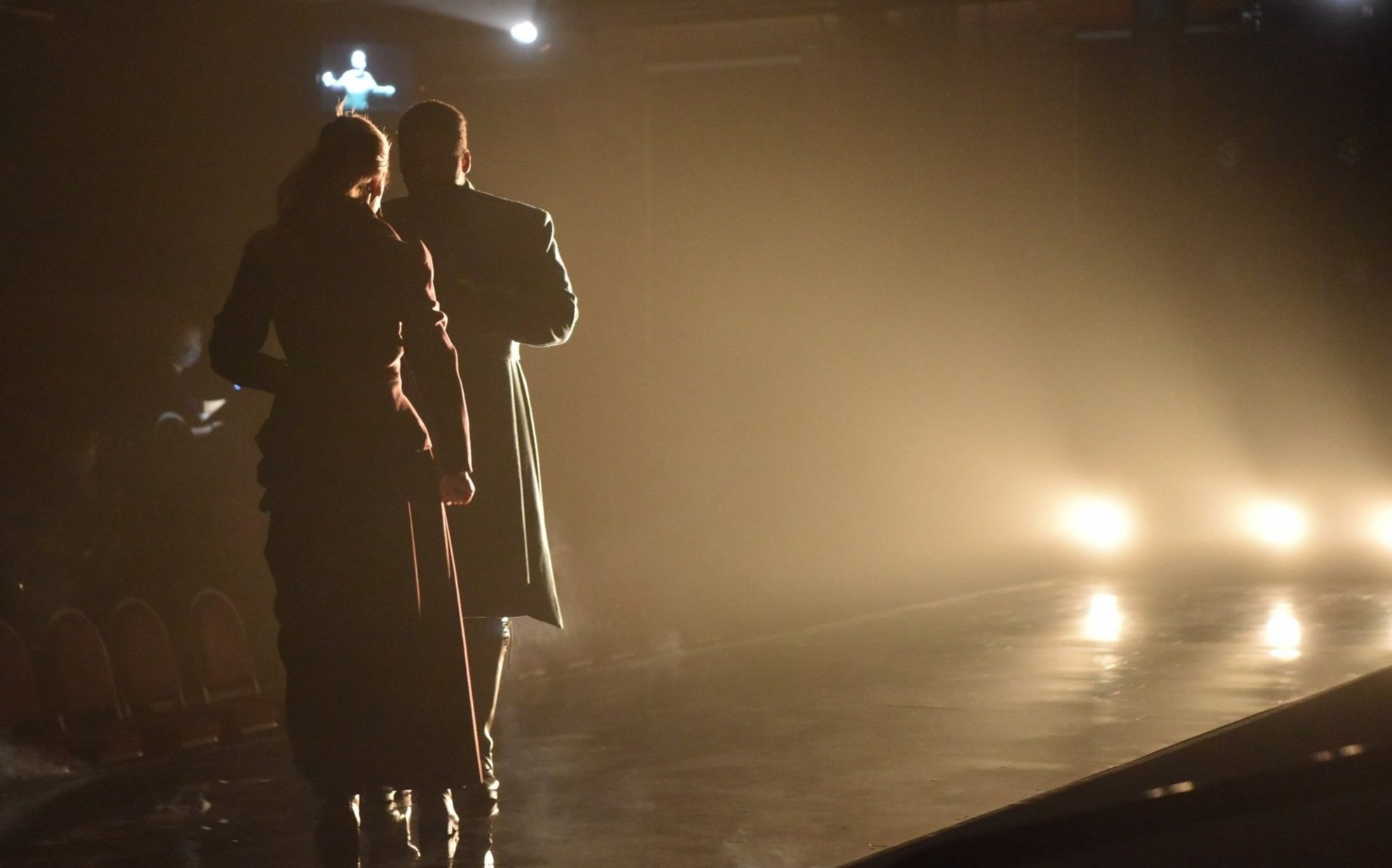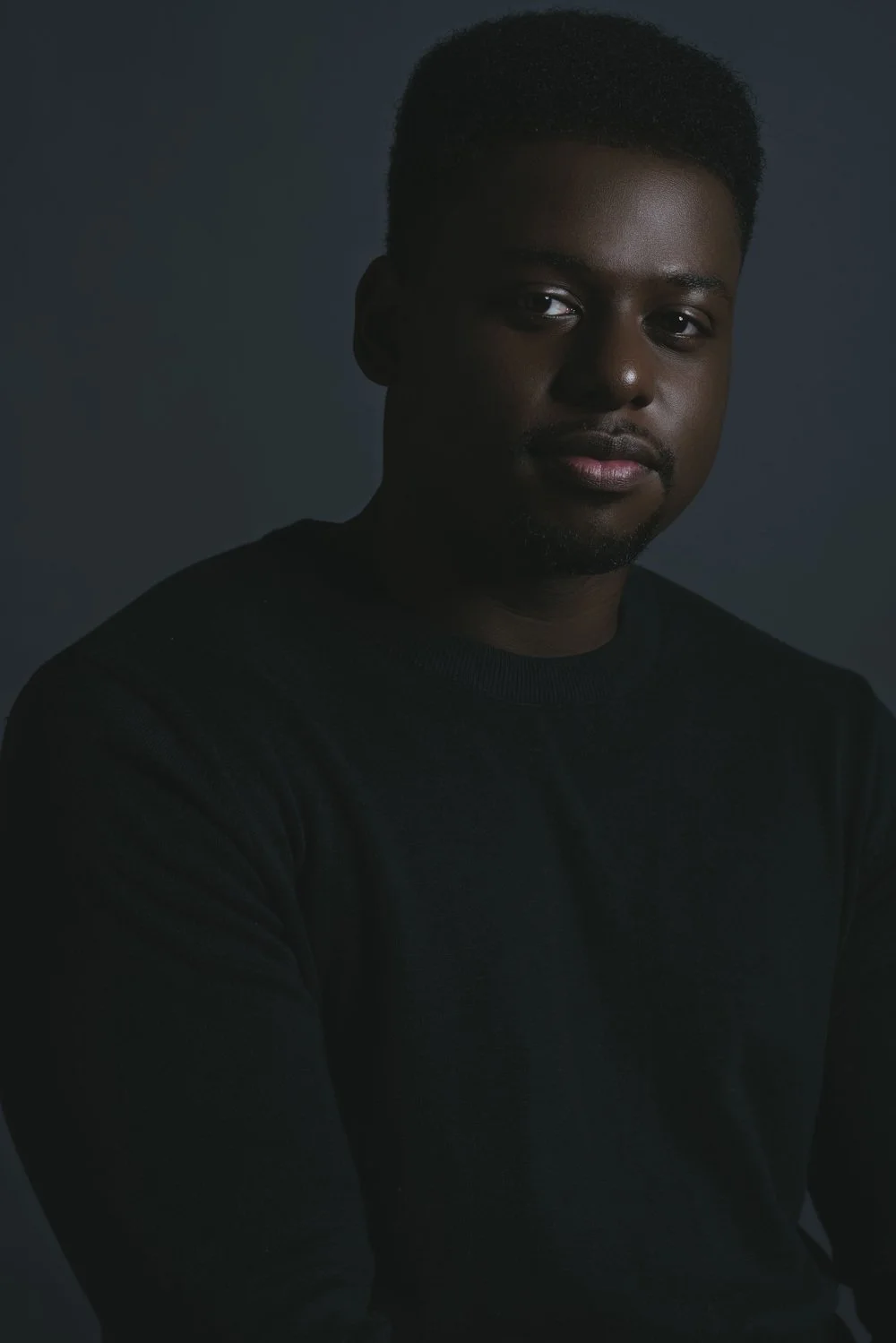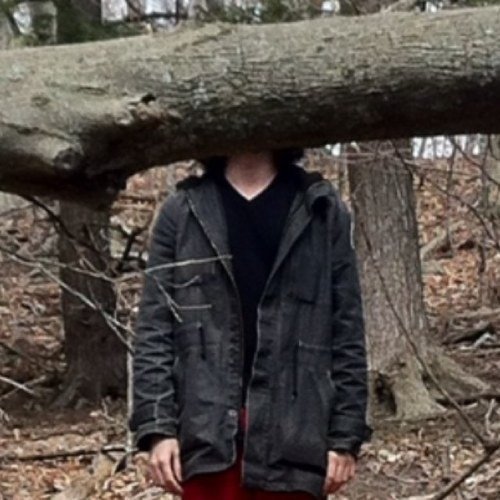“A vividly immersive thriller... not a word or note is without purpose, and both are captured, if not enhanced, in this richly produced recording.”
(Best Classical Albums of 2023, The New York Times)
About the Album
Released July 7, 2023 on In A Circle Records
In A Grove is an opera in two parts; music by Christopher Cerrone, libretto by Stephanie Fleischmann. The opera is based on the classic short story, Rashōmon, by Japanese author, Ryūnosuke Akutagawa, which was adapted into a celebrated 1950 psychological thriller-crime film by legendary filmmaker Akira Kurosawa.
The New York Times named “In A Grove” one of the best classical music albums of 2023:
“The album — vividly produced by Christopher Cerrone, Mike Tierney and Andrew Cyr, who here also conducts the nimble Metropolis Ensemble — is not a mere document of the premiere, but a creation of its own, carefully considered for the studio in the manner of Meredith Monk’s stage works.” (The New York Times)
The opera is set within a mountainous ghost forest in the Pacific Northwest in 1921, unfolding within a barren, haunted landscape devastated by wildfire. The audience is a silent, unseen interlocutor, gathering testimony from seven witnesses and potential perpetrators of a crime. It’s a story about shifting perspectives on a single criminal act.
In A Grove’s world premiere performances were in February—March 2022 with Pittsburgh Opera, directed by Mary Birnbaum and conducted by Antony Walker. This debut studio album was recorded in 2022–23 by Mike Tierney at Shiny Things Studios and Bunker Studio in Brooklyn.
Commissioned by the Los Angeles Opera, with production support from Pittsburgh Opera, with additional creative and development support provided by Metropolis Ensemble, Raulee Marcus, and Steven Block.
This recording was made possible with support from Nancy and Barry Sanders, Raulee Marcus, Steven Block, and Metropolis Ensemble.
Recent Reviews
“This recording was a totally wild experiment that I am very relieved went well.
No single musician was ever in the same room as another musician on this album… I wanted In A Grove to work as a stage piece, but also as a kind of radio opera.”
Christopher Cerrone, Composer
Grammy-nominated composer Chris Cerrone has collaborated with Metropolis since 2014, including works featured in our concerts Cymbeline, Reiterations, and Brownstone.
“The process of evolving what we were making [was] collaborative. I think that is incredibly valuable. I hope that it shows in the cohesiveness and organic-ness of of the work.”
Stephanie Fleischmann, Librettist
Adapting the short story, In A Grove, into an opera is the first collaboration between Chris and Stephanie Fleischmann, who has also worked with Metropolis community artists Anna Clyne and Dawn Upshaw.
WATCH AND LISTEN: Preview audio from the studio recording of “In A Grove” and world premiere performance with Pittsburgh Opera.
Premiere performance, Pittsburgh Opera, February 2022. Photos by Leviseur, David Rubin, and Louis Stein.
Project In-Depth
As a studio recording, the work becomes a sonic drama. Co-producers Christopher Cerrone, Mike Tierney, and Andrew Cyr created a new kind of opera album, utilizing overdubbing, multi-tracking, close-micing, compression, and other studio techniques to create a brand-new sonic world, entirely different from the one created on stage.
-
Prelude
Scene 1: The Woodcutter 02:43
Scene 2: The Priest
Scenes 3 and 4: The Mother & The Policeman
Interlude
Scene 5: The Outlaw
Interlude
Scene 6: The Missing Woman
Faux Interlude
Scene 7: The Murdered Man, Channeled by a Medium
Postlude
-
Cast:
John Taylor Ward—The Woodcutter/The Outlaw (Luther Harlow)
Chuanyuan Liu—The Priest/The Medium
Andrew Turner—The Policeman/The Settler (Ambrose Raines)
Lindsay Kesselman—The Mother/The Missing Woman (Leona Raines)
Metropolis Ensemble:
Michael Avitabile, flutes
Anton Rist, clarinets
Laura Weiner, horn
Ian Rosenbaum, percussion
Nuiko Wadden, harp
David Kaplan, piano
Clara Kim, violin
Estelle Choi, ‘cello
Christopher Cerrone, electronics
Andrew Cyr, artistic director
Electronics created in collaboration with Dave Sanchez
-
A ghost forest in the mountains of Oregon, 1921— the aftermath of a wildfire. We, the audience, are the silent, unseen interlocutor, gathering testimony from seven witnesses / potential perpetrators of a crime.
A woodcutter states that he found a body in the grove, on the mountain where he goes to cut wood. A priest testifies that he passed a man leading a woman on a horse along the Foundry Post Road. A policeman recounts his arrest of Luther Harlow, a local vigilante, who some say is responsible for the spate of women gone missing from the mountain.
A woman describes her daughter, Leona, an aspiring botanist, whose new husband, Ambrose, a schoolteacher, appears to have been murdered. The mother pleads with the interlocutor to find the girl, who is missing.
Luther Harlow confesses. Taken by the beauty of a young woman he encountered along the mountain road, he had tried to lure the girl and her husband into a nearby grove, promising treasure.
As Luther tells his story, he relives the events: The girl resists Luther’s ruse, but her husband, eager to regale his new bride with pretty trinkets, follows Luther into the grove. Luther quickly disposes of the young man, and when Leona discovers her husband bound and gagged, she pulls a knife on Luther, who wrestles her to the ground, intending to assault the girl. But she slips from his grasp, pelting Luther with a rock, knocking him out just long enough for her to free her husband, arming him with her knife. Ambrose is hesitant at first, but Leona urges him to fight.
Although the schoolteacher is no match for the vigilante, he somehow holds his own. Soon enough, however, Ambrose’s strength wanes. Leona intervenes by shooting Ambrose’s rifle into the air, and in the confusion, Luther stabs him, grabs the gun and flees, leaving him for dead.
Leona reluctantly delivers her testimony: of having encountered a dubious man on the mountain road; of her husband Ambrose’s misguided desire to follow the stranger into the grove; of being left to wait alone in the gloam, calling on the relics of the ghost forest for protection.
When the man returns without Ambrose, she follows, terrified of what has befallen her husband. In the grove, Luther attempts to assault her, but she eludes him, hurling a stone at him, freeing Ambrose so that he can defend them both. Ambrose hesitates, and she lashes out at him. Ambrose has no choice but to fight a losing battle.
Leona again steps in, pointing Ambrose’s rifle to the sky and firing. In the tumult, the marauder disappears, and Leona discovers that her husband is bleeding. She gathers medicinal plants to staunch the wound. But as she tends to Ambrose, he jealously rebukes her, accusing her of having consorted with Luther. Thrown by his anger, she balks, and in that moment he expires. Believing she killed him, she tries, over and over again to take her own life, but fails. Leona confesses that she murdered her husband.
A medium channels the dead man, who articulates the secret Ambrose was never able to tell his new bride—that his heart has always been weak, ever since suffering from rheumatic fever as a small child.
The medium and Ambrose relive the incidents leading up to Ambrose’s death from his perspective, tormented by the fact that in his final moments, he allowed his wife to believe it was she who killed him, rather than his failing heart.
-
Produced by Mike Tierney, Andrew Cyr, and Christopher Cerrone
Recorded by Mike Tierney at Shiny Things Studios and Bunker Studio in Brooklyn NYC
Edited and mixed by Mike Tierney
Mastered by Alan Silverman
Album designed by Jessica Fleischmann / Still Room
Cover photograph by Norman McBeath, from Perdendosi
© 2021 Schott Music Corporation (ASCAP). Commissioned by the Los Angeles Opera, with production support from Pittsburgh Opera, with additional creative and development support provided by Metropolis Ensemble, Raulee Marcus, and Steven Block.
This recording was made possible with support from Nancy and Barry Sanders, Raulee Marcus, Steven Block, and Metropolis Ensemble.
-
Notes by Christopher Cerrone:
IN A GROVE opens with a wash of white noise—a sonic representation of wildfire and smoke. As the opera progresses, rhythms, harmonies, motives, and eventually melodies emerge out of this aural fog, mirroring the way facts emerge, piece by piece, in this musical detective story.
As our characters relate their tales, motives and melodies recur, but they also evolve, paralleling each narrator’s shifting perspective. A throwaway melody in Luther’s scene becomes the basis for Leona’s aria in hers; finally, this melody becomes the core of the final confession, a duet between a Medium and Ambrose.
Throughout the work, the voices are transformed electronically. I tried to exemplify remembrance’s flawed roughness by distorting the voices using reverb, pitch-shifting, and, granulation—effects that suggest that our characters’ memories are flawed, foggy, or plain wrong.
In setting out to compose IN A GROVE, I tried to take something unconventional—a story told over and over again from different perspectives—and marry it to something familiar: music, where themes, repetition, and variation help us navigate and understand this mysterious tale.
———
Notes by Stephanie Fleischmann
What we discovered in the process of making IN A GROVE is that Leona is the heart of the story. And that truth is not just prismatic, elusive, and fallible, it is personal, emotional, razor-edged. The truths and untruths that we perceive, gloss over, embrace, refute or deny drive the trajectories of our lives. The uncanny weave of opacity and transparencies so aptly conjured in Akutagawa’s remarkable tale makes up the fabric of lived experience. The story’s form, that of seven testimonies, asks us to listen differently—to approach narrative, language, image and sound in new ways, and in so doing, perhaps, to see and hear anew. Obfuscation is pervasive, and yet the crystalline architecture of Chris’s music serves as a revelatory container for the ineffable. Mary’s exquisite staging plunges us into an ever-shifting grove sited within a ghost forest in the Pacific Northwest, a setting that mines a series of profoundly American truths.
———
Notes by Mary Birnbaum
When Chris and Stephanie approached me about turning Ryūnosuke Atkutagawa’s short story “In a Grove” into an opera, I was captivated by their idea of using music to tell an iterative story about the prismatic nature of truth. In the era of ‘fake news’, ’truthers’, and algorithms that lead to ‘truth decay’, our timely tale deals with the subjective nature of human experience; how truth is always colored by the truth-teller’s history, perspective and expectation.
This is not a straight adaptation of “In a Grove”, as Stephanie places the action in America, and closer to our time than Atkutagawa’s story. We owe an additional debt to Ambrose Bierce’s “The Moonlit Road” (1907), which uses a similar frame to explicate a crime. Stephanie set our opera in 1921, the year Atkutagawa’s story was written, in the forests of Oregon.
Chris has created a musical language which shimmers through Stephanie’s beautiful text, sometimes illuminating a moment and sometimes purposely blurring the edges of a word or idea. To give visual dimension to the alternating clarity and intricacy of the story, I was inspired by artists who play games with obfuscation of perspective like Fujiko Nakaya, who sculpts with fog, and James Turrell, who shifts the viewers’ perception with light, The designers Mimi Lien, Oana Botez, and Yuki Link Nakase have created a world that reveals itself in layers; the clean architecture of the design unfolds like an infinity mirror as we learn there are always two or more sides to every story, an unseen parallel experience running alongside our own, sometimes violently colliding into our world.
Through the addictive suspense of a whodunit, In a Grove asks us: how does the harm we believe we have inflicted on others continue to live in us? And can those wounds ever heal?
———
Notes on Electronics:
In a Grove is a fully amplified work that requires a mixing engineer of equally high caliber as the singers and orchestra musicians. Each instrument should be amplified individually and the four singers should each have a high-quality wireless mic.
Reverb is essential to the mixing of In a Grove—the creation of resonance by the piano, harp, and vibraphones must be supplemented with a long, warm, sustaining reverb. In addition, the engineer should mix the piece live to help with balance and text clarity.
A musician (who is not the mixing engineer, a rehearsal pianist is suggested) is asked to cue a series of prerecorded samples that blend seamlessly with the live performance. These cues are both in the vocal score and the full score and must be performed exactly in time. In addition, each of the four singers are run through a few forms of very simple electronic processing: reverb, granulation, delay, and pitch shifting of various kinds. All of the vocal effects and samples are available through a simple patch made in Max that can be downloaded for free (as can the program). It is suggested that engineer have some passing familiarity with live electronics, contemporary music, as well as contemporary popular mixing techniques, and that they collaborate with the composer for at least the first performance.
David Sanchez designed the interface for the electronics in Max.
The pianist also doubles on a standard midi keyboard playing back samples in a sampler created in Logic (but can be played back in any program that has a sampler) The sampler must be placed in a way that the pianist can access both the keyboard and the piano at the same time.
Christopher Cerrone
Composer
Christopher Cerrone (b. 1984) is internationally acclaimed for compositions characterized by a subtle handling of timbre and resonance, a deep literary fluency, and a flair for multimedia collaborations.
Recent commissions include In a Grove, a new opera co-produced by LA Opera and Pittsburgh Opera, a violin concerto for Jennifer Koh and the Detroit Symphony, an antiphonal brass concerto for the Cincinnati Symphony, a piano concerto for Shai Wosner and the Phoenix and Albany Symphonies, a percussion concerto for Third Coast Percussion, and three works for the LA Philharmonic. His first opera, Invisible Cities, based on Italo Calvino’s novel, was a finalist for the 2014 Pulitzer Prize and he is the recipient of multiple GRAMMY nominations. He is the winner of the 2015–2016 Rome Prize and is a resident at Laurenz Haus in Basel, Switzerland from 2022–23.
Christopher Cerrone holds degrees from Yale and the Manhattan School of Music and is published by Schott NY. He is on the composition faculty at Mannes School of Music and lives in Brooklyn with his wife. More info »
Stephanie Fleischmann
Librettist
The recipient of Opera America’s 2022 Campbell Librettist Prize, Stephanie Fleischmann is an award-winning librettist and playwright whose texts serve as blueprints for intricate three-dimensional sonic and visual worlds.
Opera libretti include: Poppaea (Wien Modern; Basel Zeiträume) and Medea (Ensemble MusikFabrik, Cologne), both with composer Michael Hersch; Dido with Melinda Wagner (for Dawn Upshaw and the Brentano Quartet, touring throughout the US); Another City (Houston Grand Opera) and The Long Walk (Opera Saratoga/ALT/Utah Opera), both with Jeremy Howard Beck; and operas in progress with David Hanlon (Santa Fe Opera), Yevgeniy Sharlat (Hub New Music), Matthew Recio (West Edge), Alex Weiser (ALT), and Peter Knell (Jacaranda/Seattle Opera). The Visitation, a soundwalk with Christina Campanella, can be accessed via URHERE. More info »
Meet the Artists
Opera-In-Development Concert
October 12, 2019 / 8pm / MASS MoCA
Metropolis presented an early iteration of In A Grove in collaboration with composer Christopher Cerrone, librettist Stephanie Fleischmann, producer Cath Britton, and director Mary Birnbaum prior to its world premiere with Pittsburgh Opera in 2022.


